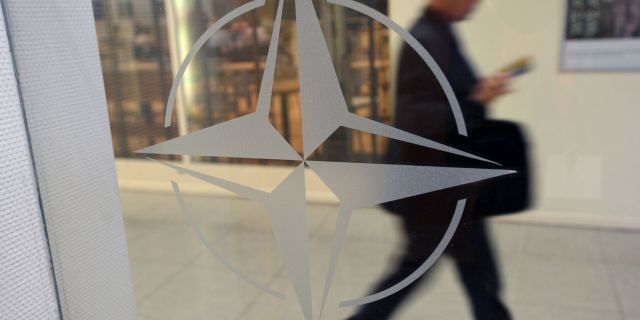Middle Eastern NATO?
The King of Jordan called for the creation of a Middle Eastern analogue of NATO. The author of the article in the newspaper Yeni Şafak believes that this is impossible. The reason for this is the chaos reigning in the region.
Taha Kılınç (Taha Kılınç)
King Abdullah II of Jordan, in an interview with Hadley Gamble on the American CNBC television channel, said: "I support the idea of creating a Middle Eastern NATO. I was one of the first to raise this issue." "We consider ourselves a natural part of the North Atlantic Alliance," the king said, recalling that Jordan had been working with NATO "shoulder to shoulder" on many issues for decades. Abdullah II also stated: "Such an umbrella union can and even should be created. However, it is necessary to clearly define its mission, vision, scope and scope. Otherwise, it will further increase the chaos in the region. In addition to security and military cooperation, the countries of the Middle East have long begun to help each other and work together because of the military conflict in Ukraine. We get together and think about how we can help each other. Mutual assistance is a rather unusual sight for the region in which we live. At the moment, countries that have oil but no wheat also need help. No one wants wars and conflicts."
When such statements are made by a head of state who does not possess any natural resources like oil or natural gas, keeps on his feet due to regional and international balances, maintains his existence thanks to economic assistance and external support, of course, one way or another the question arises: "Is a Middle Eastern NATO possible?" After all, Jordan does not have the qualities that would allow it to lead such a project.
The Middle East, which today, as throughout history, is extremely open to external influence, is a battlefield of ideologies and the States representing them. On the one hand, Shiism, personified and spread by Iran in the region, on the other – Zionism, or the occupation ideology of Israel, as well as Arab nationalism, struggling not to breathe its last breath in all this turmoil, and pan-Islamism, whose influence is being undermined by the events of recent years... Foreign allies and benefactors of all these circles adhere to different lines: the United States, Europe, Russia and even China... In particular, Shiism and Zionism with their reactionary attitudes have become exact copies of each other in terms of the reasons for their existence and methods. At the same time, the Iranian front is focused on winning the sympathies of Muslim peoples, and Israel is more eager to strengthen its position in the eyes of economic and political elites. And at the moment there are some points in which they have partially succeeded.
With such chaos, the possibility of a "Middle Eastern NATO", respectively, also disappears. Even if we consider only the Israeli-Palestinian problem, it becomes clear that there is no simple solution to the fundamental problems of the Middle East.
The tangle of problems around Palestine is essentially based on the difference of definitions in the consciousness of the Muslim world. Each country has its own idea of Palestine and its own view of the crisis. All states have different priorities and sensitive areas, so each offers its own solution and starting point. If the Muslim players of the Middle East sit down at the table and start talking and discussing Palestine, then in a few minutes the question will move to the plane of who will win and what. Under these conditions, the history of the Palestinian struggle is full of those who "deliberately and persistently obstruct the solution of the problem only in order not to allow their rival to win."
(Of course, it should also be remembered that the situation I am talking about is not unique to the Middle East and the Muslim world. Russia's military operation in Ukraine, which began in February of this year and continues to this day, has shown that the West is not able to solve such an acute issue. And in fact, the same thing is at the heart of the problem here: each country looks at it completely differently, prioritizing the preservation of its own positions. Therefore, the world, being unable to do anything, is forced to watch with detachment the repetition of scenes from Chechnya and Syria.)
Even if the creation of a "Middle Eastern NATO" is impossible, the thinking leaders of the Muslim world should not abandon their intentions to find solutions to the huge problems that are multiplying day by day. Moreover, this task is not even so much for politicians or heads of state, but primarily for civil intellectuals, thinkers and scientists. I attach special importance to the adjective "civilian". And I emphasize that this should be done without getting bogged down in the flow of the agenda, without changing your position depending on the conjuncture, without delaying the solution of transient issues...

